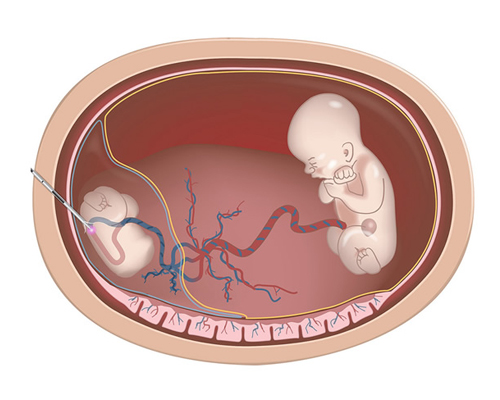Fetal reduction is a medical procedure that involves reducing the number of embryos in a multiple pregnancy. Often misunderstood, this process is designed to increase the chances for a healthy pregnancy and delivery. Misconceptions can cause anxiety, but it’s important to look past them and understand the facts.
Making informed decisions about fetal reduction is crucial. This guide aims to simplify this intricate topic, offering clarity and insight. By understanding the basics, readers can approach their healthcare providers with the right questions and feel empowered in their decision-making process.
Medical Scenarios: Why Consider Fetal Reduction?
In pregnancies involving multiple embryos, the health stakes are higher for both the mother and babies. More embryos mean increased chances of complications like preterm birth and development issues. This is where fetal reduction procedures come into play.
Doctors might recommend selective fetal reduction under specific circumstances. If carrying all embryos could lead to life-threatening conditions for the mother or babies, embryo reductions are considered. The procedure helps in reducing these risks, offering a better health outlook for the remaining embryos.
Real-Life Perspectives: Personal Stories
Several families have faced the complex decision of embryo reduction. Their stories reveal both the challenges and triumphs.
Many describe an emotional journey, filled with tough decisions. Couples often weigh risks and moral beliefs, all while receiving medical advice. While each story is unique, they all share a common thread of seeking the best possible outcomes for their families.
Navigating Ethical Considerations
Fetal reductions present emotional and ethical challenges. Deciding to continue or reduce a pregnancy tests one’s values against societal expectations.
Personal beliefs, family traditions, and cultural factors can heavily influence decisions. Honoring these while considering medical advice is a delicate balance. Navigating these waters often requires support from family and healthcare professionals, ensuring the decision aligns with personal and shared values.
Assessing Risks and Benefits
Every medical procedure has risks and benefits. With fetal reduction, physical health risks can include bleeding or infection. However, reducing the number of embryos can significantly decrease risks of complications in the remaining pregnancy.
Emotionally, families shoulder both relief and grief. The fetal reduction procedure can improve health outcomes for the mother and remaining embryos, providing peace of mind and a more manageable pregnancy.
Legal Landscape: Fetal Reduction in India
India has specific laws regarding fetal reduction. It is vital for expectant families to be aware of their rights and the legal process.
The regulatory framework supports informed decision-making, with medical experts guiding each step. Knowing the legal steps involved helps families navigate the process smoothly and ensures compliance with local laws.
The Vital Role of Counseling and Psychological Support
During this journey, mental health support is essential. Counseling offers a safe space to express fears and hopes.
Counselors play a pivotal role in helping families adapt. They provide tools to cope and resources to access additional support as needed. Encouraging open discussions aids in making more informed and confident decisions.
Exploring Alternative Options
Before deciding on embryo reduction, consider all options. Sometimes, medical interventions or lifestyle changes can help manage multiple pregnancies.
Consulting with healthcare providers about alternatives ensures decisions are well-rounded. It’s about finding the path that aligns best with family goals and health.
Involvement of a Multidisciplinary Health Team
Having a team of experts, including doctors and genetic counselors, ensures comprehensive care. They work collaboratively to address every aspect of the pregnancy.
This support network offers tailored advice, suited to each family’s specific situation. Their collective expertise is invaluable in navigating the complexities of selective fetal reduction.
Advancements in Medical Practices and Future Directions
Medical technology is continually advancing, impacting fetal reduction procedures. New research is evolving the understanding of fetal development, providing safer methods.
These advancements might open new possibilities for managing high-risk pregnancies. Staying informed about these developments helps families make future-ready decisions.
Conclusion
Exploring fetal reduction requires a deep understanding of medical, legal, and ethical considerations. By equipping themselves with knowledge, families can engage in meaningful discussions with healthcare providers, paving the way for informed decisions.
Ultimately, the focus remains on individual empowerment and making choices that resonate with personal values and medical advice. As medical practices evolve, families are encouraged to remain informed and proactive in their decision-making journey.

